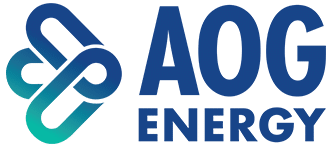Gender bias a major concern for oil and gas sector’s future
Gender diversity is looming as a potential crisis for the oil and gas industry according to a recent report.
Titled “Untapped Reserves: Promoting Gender Balance in Oil and Gas”, the study found that the petroleum industry is missing out on a large and very important talent pool at a time when the sector is facing potential skills shortages.
Created through a collaboration between the World Petroleum Council and The Boston Consulting Group the report’s findings are based on personal interviews with more than 60 male and female senior industry executives worldwide and a survey of approximately 2,000 male and female industry professionals from a wide range of companies and countries
An interesting finding in the study is that there were no statistically significant differences among companies in different countries or regions.
Key findings of the study included:
– Women represent approximately one fifth of employees in the oil and gas industry, a significantly smaller share of the workforce than almost any other sector.
-The study found that the Oceania region, including Australia, was at the lower end for women being educated in the STEM (science, technology, engineering and mathematics) area, considered a critical entry point for technical level employment.
-While an average 22% of jobs in the industry are filled by women, a look at specific job categories tells a different story. University-educated women hold fully 50% of entry-level office and business-support positions, but they hold only 15% of entry-level technical and field positions.
-The percentage of women in the industry’s workforce drops over time and falls particularly sharply—from 25% to 17%—between the middle-management and senior-leadership career stages.
-57% of women said that female employees receive less support for advancement into senior positions than male employees; only 24% of men agreed. 56% of women said that women are overlooked for senior positions; only 23% of men agreed.
-Attracting and retaining greater numbers of women, particularly those with optimal backgrounds and skill sets, will pose challenges for the industry.
The authors of the study say oil and gas companies are failing to fully leverage a critical pool of talent that could ultimately weigh heavily on oil and gas companies’ ability to increase capital productivity.
This could come back to haunt operators as they face the challenges posed by the potential large-scale retirement of many experienced employees, an ongoing uncertain oil price environment, and advances in robotics and artificial intelligence that could reshape the industry in a host of ways.
Another recent report, this time looking at listed ASX companies, also highlighted the opportunities local businesses are missing with a perceived lack of support for culturally diverse women.
Undertaken by Diversity Council Australia and The University of Sydney Business School, the “Cracking the Glass-Cultural Ceiling” report found that only two per cent of ASX directors are culturally diverse women.
In a summary of its survey findings, the report highlighted a number of key areas of concern including the general lack of access to sponsorship, mentoring and networking for culturally diverse women. This is underscored by a combination of gender and cultural biases compounds culturally diverse women’s lack of career progress and opportunities.
The report also highlighted a failure for companies to make flexibility standard business practice and the lack of leadership accountability for delivering on diversity and inclusion.
Diversity will again be a major topic of discussion at AOG 2018 when the popular AOG Diversity & Inclusion event returns as a breakfast session. This event will be staged at the Perth Convention and Exhibition Centre on Thursday March 15, 2018.
Subscribe now to keep up-to-date with the latest.
-
Stay up to date with the latest news, industry insights and AOG Energy updates.
- Subscribe

